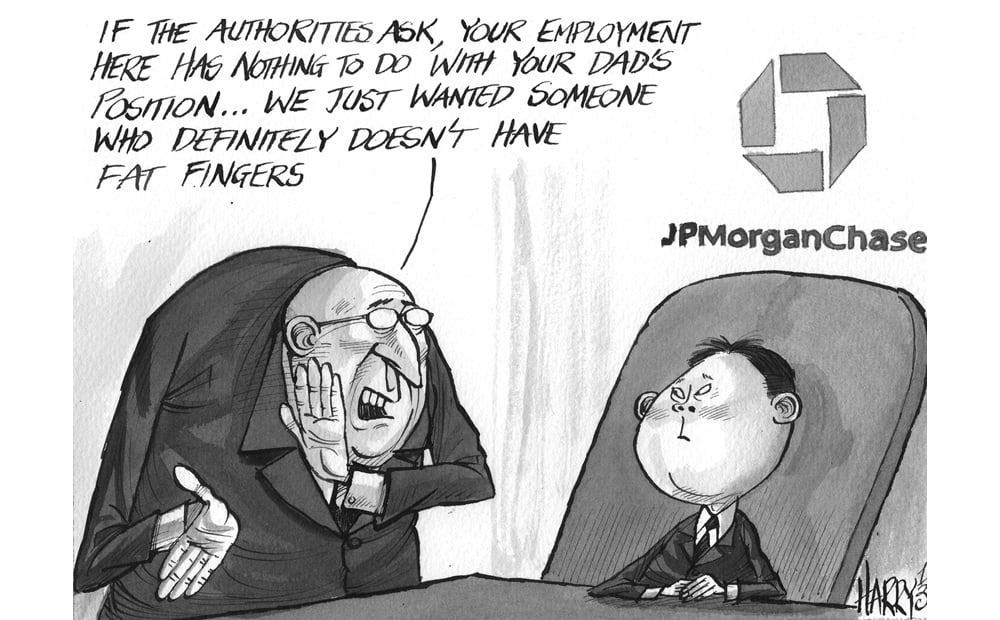BY GARY CHODOROW

As has been widely reported, Kushner Companies recently put on a roadshow to market to Chinese investors a New Jersey real estate project called One Journal Square.
The investments are structured such that investors may qualify for green cards through the EB-5 program, which requires a minimum $500,000 investment resulting in the creation of at least 10 U.S. jobs.
Initial reporting about the roadshow led the Kushner Companies to apologize last week for boasting about their ties to White House adviser Jared Kushner during the roadshow.
Initial reporting about the roadshow led the Kushner Companies to apologize last week for boasting about their ties to White House adviser Jared Kushner during the roadshow.
“In a sector where investors are wary of failing projects and policy changes that would jeopardize their visas,” writes Alexandra Harney for Reuters, such boasts are meant to “reassure potential investors their EB-5 projects will be successful.”
Reuters is now reporting that Kushner Companies’ activities may have crossed the line from boasting to misrepresentation, making the company vulnerable to charges of securities fraud by the U.S. Securities and Exchange Commission (SEC).
Reuters is now reporting that Kushner Companies’ activities may have crossed the line from boasting to misrepresentation, making the company vulnerable to charges of securities fraud by the U.S. Securities and Exchange Commission (SEC).
Specifically, advertisements by the company’s marketing agent in China contain multiple misrepresentations about the safety of the investment.
Kushner Companies’ marketing agent, QWOS Group, also known as Qiaowai, produced an online advertisement claiming that the investment “in a real sense guarantees a permanent green card and the safety of the investment principal.”
Kushner Companies’ marketing agent, QWOS Group, also known as Qiaowai, produced an online advertisement claiming that the investment “in a real sense guarantees a permanent green card and the safety of the investment principal.”
After Reuters asked Qiaowai for comment, the advertisement was deleted.
Other advertisements for the project made similar false claims.
The SEC enforces Section 10(b) of the Securities and Exchange Act of 1934, and Rule 10b-5, codified at 17 C.F.R. 240.10b-5, which target securities fraud.
The SEC enforces Section 10(b) of the Securities and Exchange Act of 1934, and Rule 10b-5, codified at 17 C.F.R. 240.10b-5, which target securities fraud.
EB-5 investments are frequently structured as a type of “security” subject to the antifraud provisions of federal securities laws, according to SEC congressional testimony.
Rule 10b-5 makes it unlawful to “make any untrue statement of a material fact or to omit to state a material fact necessary in order to make the statements made, in the light of the circumstances under which they were made, not misleading.”
Qiaowai’s advertisements violate the rule in two ways.
Qiaowai’s advertisements violate the rule in two ways.
- First, EB-5 investments are financially risky, not guaranteed. The immigration law specifically prohibits investments where the money is not at risk.
- Second, there is no guarantee that an investor will actually get a green card. There are a host of reasons why an investor could be denied a green card.
Some are related to the investor, such as health issues, membership in the Communist Party, inability to prove that the funds invested were earned legally, prior U.S. immigration violations, etc.
Some are related to the project, such as failure to employ the required number of U.S. workers, or delays or changes to the project.
In a jointly issued Investor Alert, USCIS and SEC warn against precisely these types of misrepresentation:
Beware if you spot any of these hallmarks of fraud:
Promises of a visa or becoming a lawful permanent resident.
In a jointly issued Investor Alert, USCIS and SEC warn against precisely these types of misrepresentation:
Beware if you spot any of these hallmarks of fraud:
Promises of a visa or becoming a lawful permanent resident.
Investing through EB-5 makes you eligible to apply for a conditional visa, but there is no guarantee that USCIS will grant you a conditional visa or subsequently remove the conditions on your lawful permanent residency.
USCIS carefully reviews each case and denies cases where eligibility rules are not met.
Guarantees of the receipt or timing of a visa or green card are warning signs of fraud.
Guaranteed investment returns or no investment risk.
Guaranteed investment returns or no investment risk.
Money invested through EB-5 must be at risk for the purpose of generating a return.
If you are guaranteed investment returns or told you will get back a portion of the money you invested, be suspicious.
Kushner Companies may not be shielded from liability just because they hired Qiaowai rather than doing the marketing themselves.
Kushner Companies may not be shielded from liability just because they hired Qiaowai rather than doing the marketing themselves.
They may be liable for the actions of their agents, sometimes referred to in the industry as “finders.” Securities lawyers advise that developers should know the parties marketing their deal abroad.
The best practice is to have a clear agreement with the agent in which the agent agrees to comply with securities laws and to provide all marketing materials to the developer’s securities counsel for review before publication.
The SEC did not respond to questions by Reuters about Qiaowai’s ads.
Besides the One Journal Square project, Qiaowai previously helped the Kushner Companies raise funds for Trump Bay Street, an apartment complex in Jersey City, New Jersey, that The Trump Organization licensed its name to.
The SEC did not respond to questions by Reuters about Qiaowai’s ads.
Besides the One Journal Square project, Qiaowai previously helped the Kushner Companies raise funds for Trump Bay Street, an apartment complex in Jersey City, New Jersey, that The Trump Organization licensed its name to.
